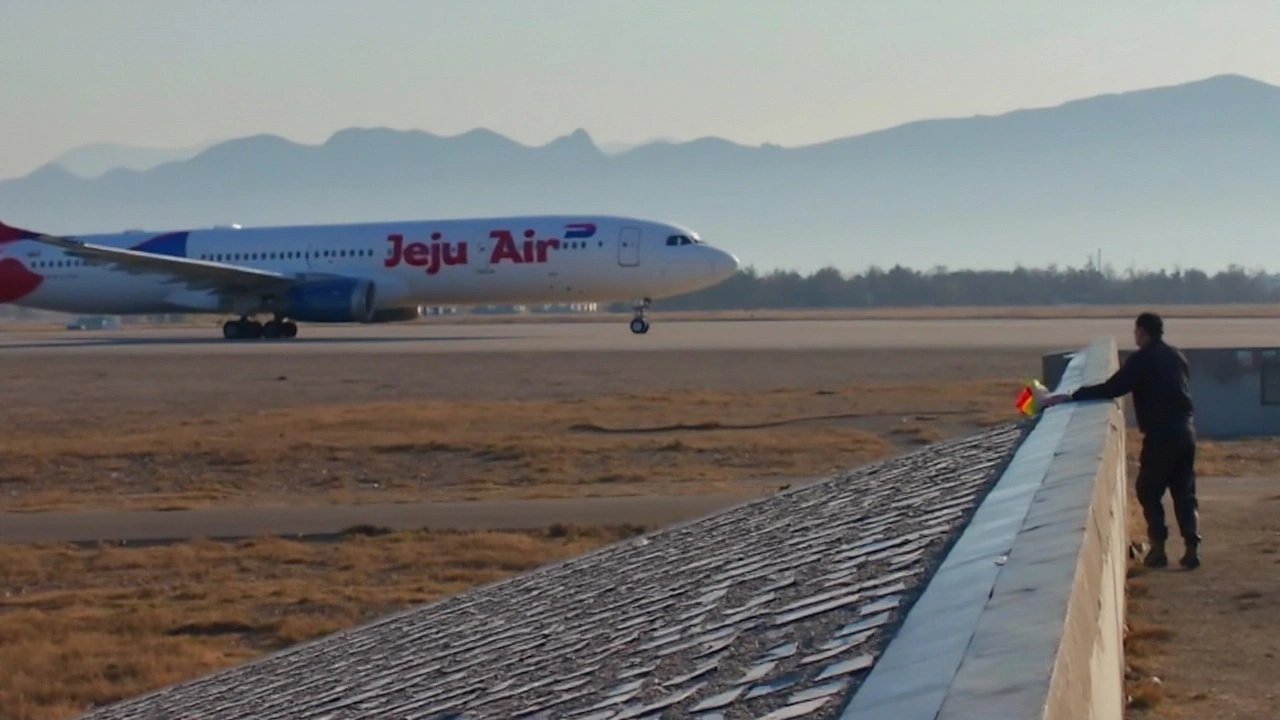Jeju Air Flight Cuts Fuel Growing Outrage After South Korea Crash
A recent plane crash in South Korea has pushed safety concerns at local airports into the spotlight. Jeju Air, the popular low-cost carrier that operates hundreds of flights daily across the country, is now sharply reducing services while authorities scramble for answers. What's got everyone boiling is a not-so-ordinary airport wall, which many blame for turning a bad landing into a disaster.
It all started when a Jeju Air passenger flight, carrying more than 150 people, experienced a harrowing landing at an airport on the Korean peninsula. The plane veered off the rain-slicked runway, skidding toward a reinforced perimeter wall. Designed as a ‘safety feature’ to prevent runway overruns, this wall instead turned the aircraft into a crumpled heap, trapping terrified passengers inside and causing a wave of injuries.
Local rescue teams raced to the scene, but the wall’s construction made their job tough. Passengers described trying to escape to safety, only to be met with concrete and metal in their path. People’s anger on the ground quickly spread online, with viral posts asking why such a wall even exists if it only worsens accidents.
Safety or Hazard? Debate Over Airport Infrastructure Intensifies
As the nation grapples with news coverage of the crash, Jeju Air’s management is issuing apologies and cutting dozens of flights—both to review safety protocols and because crews are shaken up. Airport officials say the wall meets international standards. But families of passengers point to other countries with alternative safety zones—like crushable beds—which slow an aircraft without slamming it into concrete.
The aviation authority now faces mounting pressure. Politicians are calling for an independent review of the entire airport safety system, not just at this one facility but at airports nationwide. Travel agencies report spikes in cancellations as people lose faith in a system they see as outdated and indifferent to actual safety. There’s also chatter about a class-action lawsuit by passengers and families, demanding compensation for trauma and injuries that could have been prevented.
For airline workers, it’s a tense moment. Pilots must now explain new landing precautions to worried travelers, and crews are navigating fresh safety checks that slow down operations. Industry insiders privately say that Jeju Air’s decision to cut routes isn’t just about crash investigations—it’s a business move to buy time as they reevaluate partnerships and insurance deals.
Most striking is the mood among everyday Koreans. What started as an accident is now a national conversation about infrastructure, accountability, and trust. With Jeju Air at the center, authorities have to act fast—not just to restore schedules, but to prove they take public anger seriously and are ready to put safety before convenience.
